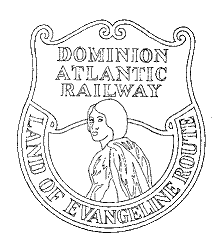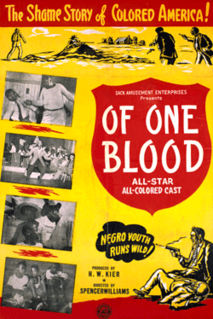
Cape Breton Island is an island on the Atlantic coast of North America and part of the province of Nova Scotia, Canada.

Nova Scotia is one of the thirteen provinces and territories of Canada. It is one of the three Maritime provinces and one of the four Atlantic provinces. Nova Scotia is Latin for "New Scotland". Most of the population are native English-speakers.

The Acadians are the descendants of the French who settled in Acadia during the 17th and 18th centuries. Some are also descended from the Indigenous peoples of the region.

Louisbourg is an unincorporated community and former town in Cape Breton Regional Municipality, Nova Scotia.

The Expulsion of the Acadians, also known as the Great Upheaval, the Great Expulsion, and the Great Deportation, was the forced removal by the British of the Acadian people from the present-day Canadian Maritime provinces of Nova Scotia, New Brunswick, Prince Edward Island and northern Maine — parts of an area historically known as Acadia, causing the death of thousands of people. The Expulsion (1755–1764) occurred during the French and Indian War and was part of the British military campaign against New France. The British first deported Acadians to the Thirteen Colonies, and after 1758, transported additional Acadians to Britain and France. In all, of the 14,100 Acadians in the region, approximately 11,500 Acadians were deported. A census of 1764 indicates that 2,600 Acadians remained in the colony having eluded capture.

Joseph Howe, was a Nova Scotian journalist, politician, public servant, and poet. Howe is often ranked as one of Nova Scotia's most admired politicians and his considerable skills as a journalist and writer have made him a provincial legend.

Evangeline, A Tale of Acadie is an epic poem by the American poet Henry Wadsworth Longfellow, written in English and published in 1847. The poem follows an Acadian girl named Evangeline and her search for her lost love Gabriel, set during the time of the Expulsion of the Acadians.

NSCAD University, also called the Nova Scotia College of Art and Design, is a post-secondary art school in Halifax, Nova Scotia, Canada. It was founded in 1887 by Anna Leonowens and later became the first degree-granting art school in Canada.

The Lieutenant Governor of Nova Scotia is the viceregal representative in Nova Scotia of the Canadian monarch, Queen Elizabeth II, who operates distinctly within the province but is also shared equally with the ten other jurisdictions of Canada, as well as the other Commonwealth realms and any subdivisions thereof, and resides predominantly in her oldest realm, the United Kingdom. The Lieutenant Governor of Nova Scotia is appointed in the same manner as the other provincial viceroys in Canada and is similarly tasked with carrying out most of the monarch's constitutional and ceremonial duties. The present, and 33rd, Lieutenant Governor of Nova Scotia is Arthur Joseph LeBlanc, who has served in the role since 28 June 2017.

The Dominion Atlantic Railway was a historic railway which operated in the western part of Nova Scotia in Canada, primarily through an agricultural district known as the Annapolis Valley.

Grand-Pré National Historic Site is a park set aside to commemorate the Grand-Pré area of Nova Scotia as a centre of Acadian settlement from 1682 to 1755, and the British deportation of the Acadians that happened during the French and Indian War. The original village of Grand Pré extended four kilometres along the ridge between present-day Wolfville and Hortonville. Grand-Pré is listed as a World Heritage Site and is the main component of two National Historic Sites of Canada.

Fort Edward is a National Historic Site of Canada in Windsor, Nova Scotia, and was built during Father Le Loutre's War (1749-1755). The British built the fort to help prevent the Acadian Exodus from the region. The Fort is most famous for the role it played both in the Expulsion of the Acadians (1755) and in protecting Halifax, Nova Scotia from a land assault in the American Revolution. While much of Fort Edward has been destroyed, including the officers' quarters and barracks, the blockhouse that remains is the oldest extant in North America. A cairn was later added to the site.

Viola Irene Desmond was a Canadian civil rights activist and businesswoman of Black Nova Scotian descent. In 1946, she challenged racial segregation at a cinema in New Glasgow, Nova Scotia by refusing to leave a whites-only area of the Roseland Theatre. For this, she was convicted of a minor tax violation for the one-cent tax difference between the seat that she had paid for and the seat that she used, which was more expensive. Desmond's case is one of the most publicized incidents of racial discrimination in Canadian history and helped start the modern civil rights movement in Canada.

The Old Burying Ground is a historic cemetery in Halifax, Nova Scotia, Canada. It is located at the intersection of Barrington Street and Spring Garden Road in Downtown Halifax.

Of One Blood is a 1944 race film directed by and starring Spencer Williams. The film focuses on two orphaned African American brothers who grow up to become a lawyer and a police officer, and who work together to break up a crime ring that is run by a miscreant who turns out to be their long-lost older brother.

Nova Scotia is a Canadian province located in Canada's Maritimes. The region was initially occupied by Mi'kmaq. During the first 150 years of European settlement, the colony was primarily made up of Catholic Acadians, Maliseet and Mi'kmaq. During the latter seventy-five years of this time period, there were six colonial wars that took place in Nova Scotia. After agreeing to several peace treaties, this long period of warfare ended with the Halifax Treaties (1761) and two years later when the British defeated the French in North America (1763). During these wars, Acadians, Mi'kmaq and Maliseet from the region fought to protect the border of Acadia from New England. They fought the war on two fronts: the southern border of Acadia, which New France defined as the Kennebec River in southern Maine. The other front was in Nova Scotia and involved preventing New Englanders from taking the capital of Acadia, Port Royal, establishing themselves at Canso.

The Canadian Bioscope Company was a film company formed in Halifax, Nova Scotia on December 4th 1912 and dissolved on February 10th, 1915. Founded by British-born Captain H.H.B. Holland, Canadian Bioscope established offices in Halifax and New York City. Canadian Bioscope's Halifax office and studios were located at 108 Pleasant St., at the south end, property now occupied by the "Foundry" building. A pioneer in the Canadian film industry, this Maritime-based firm, employing both Nova Scotians and Americans, sought to develop an international distribution network from the outset, in order to ensure economic longevity and provide Nova Scotian films to the world.
Grace Dean Rogers was a Canadian novelist and historian.

Russell Ball was a studio glamour photographer who made stills for films and portraits of Hollywood film stars including Jean Harlow, Greta Garbo, Louise Brooks, Mary Pickford, Esther Ralston and Carol Dempster.


















